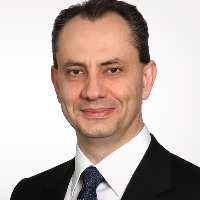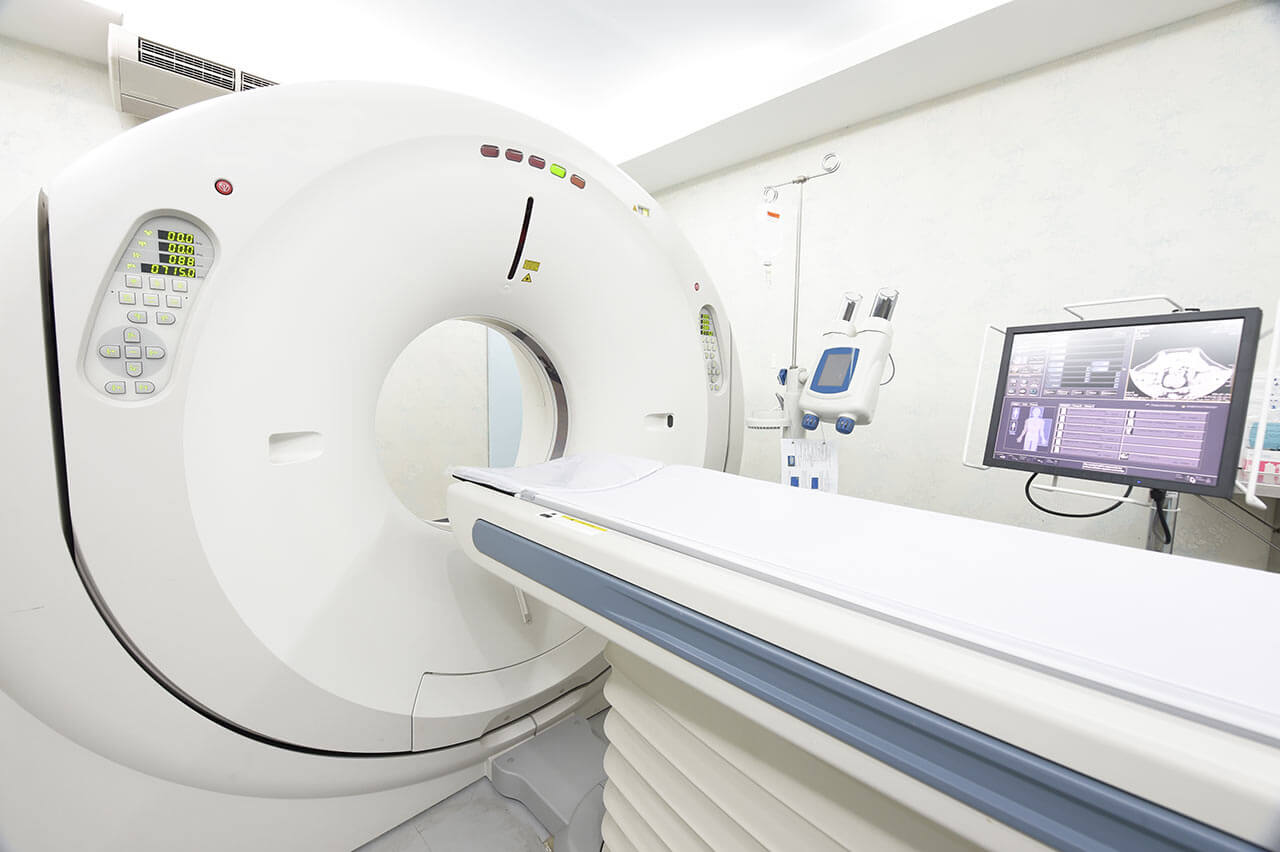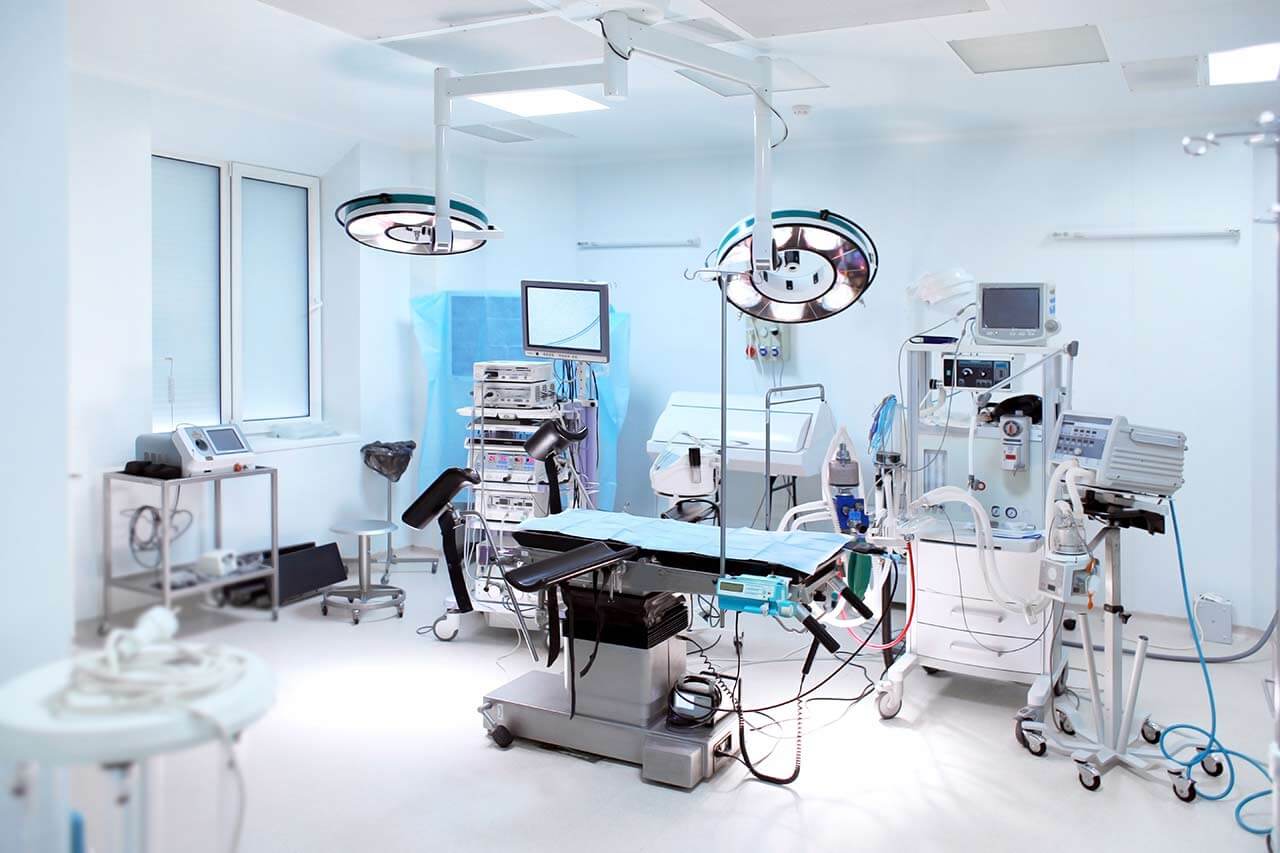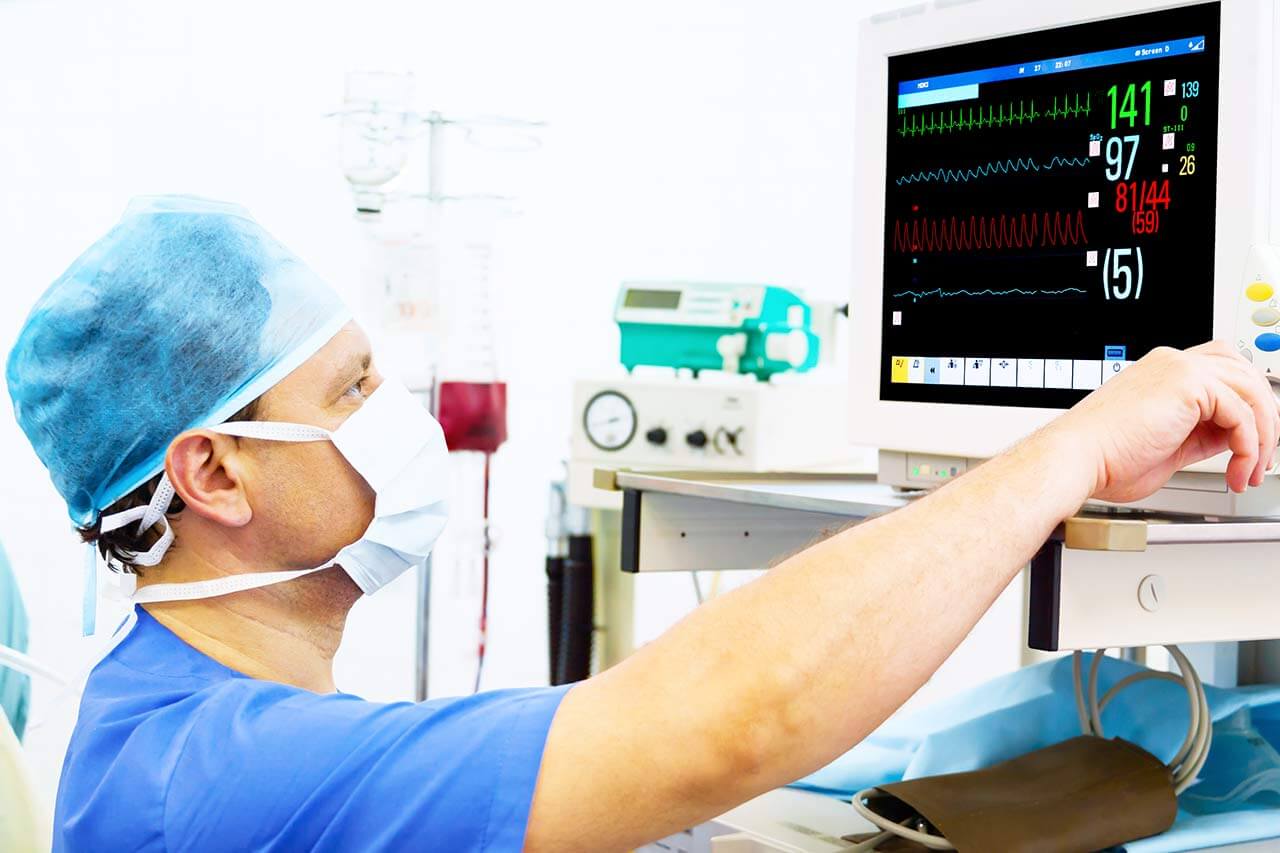
The program includes:
- Initial presentation in the clinic
- clinical history taking
- physical examination
- cardiological examination
- laboratory tests:
- complete blood count
- general urine analysis
- biochemical analysis of blood
- TSH-basal, fT3, fT4
- indicators of inflammation
- indicators blood coagulation
- transesophageal echocardiography (TEE)
- EKG/ ECHO/ x-ray of thr chesе
- holter monitoring (24h)
- heart catheterization
- preoperative care
- surgical treatment of heart defects
with heart-lung mashine - symptomatic treatment
- control examinations
- cost of essential medicines and materials
- nursing services
- full hospital accommodation
- explanation of future recommendations
Required documents
- Medical records
- Echocardiography (if available)
Service
You may also book:
 BookingHealth Price from:
BookingHealth Price from:
About the department
The Department of Pediatric Cardiac Surgery and Treatment of Congenital Heart Defects at the Heart and Diabetes Center NRW Bad Oeynhausen offers the full range of modern examinations of the cardiovascular system and effective surgical treatment for heart pathologies in newborns, infants, adolescents, and adults with congenital heart disease. The department regularly demonstrates high treatment success rates, thanks to which it has gained a reliable reputation in Germany and in the European medical arena.
The department is headed by Prof. Dr. med. Eugen Sandica, who has excellent qualifications in treating especially complex forms of heart failure. For example, one of his most outstanding achievements was the operation on a premature girl weighing only 660 grams, a very complex open-heart surgery. The heart of a child was the size of a hazelnut.
The department annually performs more than 500 surgical interventions on the heart, of which about 360 are performed using a heart-lung machine. In addition, the medical facility is one of the few in Europe that specializes in heart transplants for newborns, young children, and adolescents. About 200 such operations are performed here annually. Pediatric cardiac surgeons cooperate closely with the specialists in pediatric cardiology, which allows them to guarantee comprehensive and the most effective treatment for young patients.
The department's team of pediatric cardiac surgeons performs many interventions on newborns. The specialists successfully perform operations for congenital heart defects, including hypoplastic left heart syndrome, total anomalous pulmonary venous return, critical aortic stenosis, univentricular heart, patent ductus arteriosus, and others. Today, for the repair of congenital heart defects, low-traumatic catheter-based interventional procedures are widely used, and therefore, before deciding on an operation, cardiac surgeons, in cooperation with cardiologists, accurately examine the child to select the optimal treatment option.
One of the most common congenital heart defects in children is transposition of the great arteries (TGA). A child with this disease has an incorrect anatomical position of the aorta and pulmonary artery: the aorta does not depart from the left ventricle, as in a healthy heart, but from the right one, while the pulmonary artery is connected to the left ventricle. Transposition of the great arteries is dangerous because venous blood with a low oxygen content from the systemic circulation does not enter the lungs, returning to the systemic circulation, and oxygen-rich blood from the lungs returns to the lungs through the pulmonary artery, which prevents their mixing. This congenital heart disease also causes cyanosis, which is skin blueness with insufficient blood oxygenation. The lack of timely surgical treatment threatens the child with a fatal outcome. During the operation, a surgeon dissects tissues in the chest and reaches the heart, after which he approaches the main blood vessels and the heart. The specialist dissects both blood vessels approximately in the middle of their length, after which he restores the normal anatomical position of the aorta and pulmonary artery. After a surgical intervention, a young patient must be regularly monitored by a doctor and undergo follow-up examinations.
The department's cardiac surgeons often perform surgery for hypoplastic left heart syndrome (HLHS). This defect is characterized by underdevelopment of the left ventricle, combined with aortic valve stenosis and mitral valve atresia. Since hypoplastic left heart syndrome is one of the most complex heart pathologies, the treatment is also quite complicated and is carried out in three stages. At the first stage, the department's pediatric cardiac surgeons perform the Norwood procedure. The next intervention is performed in 4-6 months. The essence of the operation is to create a connection between the superior vena cava and the pulmonary artery. The final stage of treatment is an operation, the purpose of which is to connect the inferior vena cava with the pulmonary artery, which allows the doctors to completely separate the systemic circulation from the small one. The third intervention is performed at the age of 3-4 years, when the child's body weight reaches about 15 kg. After the completion of treatment, the child will need to undergo regular heart check-ups throughout their lives.
The department is certified as the Adult Congenital Heart Disease Center by the German Cardiac Society (DGK). The department's specialists admit patients over the age of 18 who underwent treatment for heart disease in childhood, but they require constant check-ups and monitoring of their health.
The department's surgical options include:
- Surgical treatment of congenital heart defects in newborns
- Surgery for transposition of the great arteries
- Surgery for hypoplastic left heart syndrome
- Surgery for total anomalous pulmonary venous return
- Surgery for an aortopulmonary window
- Surgery for an interrupted aortic arch with or without a ventricular septal defect
- Surgery for critical aortic valve stenosis (if catheter-based treatment is not possible)
- Surgery for common arterial trunk
- Surgery for pulmonary atresia/critical pulmonary valve stenosis with an intact ventricular septum
- Surgery for tricuspid atresia
- Surgery for univentricular heart
- Surgery for anomalous left coronary artery from the pulmonary artery
- Surgery for severe forms of Ebstein's anomaly
- Surgery for critical narrowing of the aortic isthmus (coarctation)
- Surgery for patent ductus arteriosus in premature babies
- Open-heart surgery in very small premature babies
- Surgical treatment of congenital heart defects in infants, young children, and adolescents
- Surgery for ventricular septal defects
- Surgery for atrioventricular canal defects
- Surgery for cor triatriatum
- Surgery for anomalous left coronary artery from the pulmonary artery
- Surgery for the formation of a vascular ring/loop
- Surgery for the aorto-left ventricular tunnel
- Surgery for tetralogy of Fallot
- Surgery for duplication of the right ventricular outflow tract
- Surgery for bidirectional cavopulmonary anastomosis in preparation for the Fontan procedure
- Unifocalization of pulmonary blood flow in pulmonary atresia with a ventricular septal defect and formation of large aortopulmonary collateral arteries
- Heart transplant surgery
- Implantation of an artificial heart and mechanical circulatory systems
- Surgery for heart valve defects
- Hybrid heart surgery
- Right ventricular outflow tract reconstruction
- Pacemaker and defibrillator implantation
- Surgical treatment of congenital heart defects in adults
- Atrial septal defect closure
- Ventricular septal defect closure
- Repair of the Tetralogy of Fallot and treatment of the consequences of the defect
- Surgery for aortic stenosis
- Aortic valve replacement with or without aortic annulus enlargement
- Replacement of biological prosthetic heart valves
- Hybrid interventions for right ventricular outflow tract (RVOT) reconstruction after repair of tetralogy of Fallot in childhood
- Surgery after repair of the transposition of the great vessels in childhood
- Surgery after palliative treatment of tetralogy of Fallot in childhood
- Heart transplant surgery
- Other surgical services
Curriculum vitae
Prof. Dr. med. Eugen Sandica is the Head Physician of the Department of Pediatric Cardiac Surgery and Treatment of Congenital Heart Defects at the Heart and Diabetes Center NRW Bad Oeynhausen. The pediatric cardiac surgeon is known worldwide for his successful clinical work. The specialist has unique professional skills in heart transplants and the implantation of mechanical circulatory support systems in children of all age groups.
Dr. med. Eugen Sandica began his professional career as an Assistant Physician in the Departments of Cardiology and Cardiac Surgery at hospitals in Romania and the USA. The doctor then worked at hospitals in Austria, Hungary, and the USA, where the main focus of his clinical practice was cardiothoracic surgery. Prof. Sandica has gained experience in pediatric cardiac surgery at prestigious hospitals in Birmingham and London. Since 2004, he has been Senior Physician in the Department of Cardiothoracic Surgery, and 4 years later he was appointed Head Physician of the Department of Pediatric Cardiac Surgery and Treatment of Congenital Heart Defects at the Heart and Diabetes Center NRW Bad Oeynhausen.
Photo of the doctor: (c) Herz- und Diabeteszentrum NRW, Bad Oeynhausen
About hospital
According to the prestigious Focus magazine, the Heart and Diabetes Center NRW Bad Oeynhausen ranks among the top German hospitals in the area of its specialization!
The center is one of the leading medical facilities specializing in the treatment of cardiovascular diseases and diabetes mellitus at the international level. About 37,000 patients are treated here every year, while approximately 14,700 of them receive inpatient medical care. The highly qualified specialists at the center perform about 6,400 heart surgeries and about 10,000 cardiac catheter-based examinations, as well as about 800 electrophysiological studies, and provide medical care to more than 1,000 patients with congenital heart defects annually. The doctors are justifiably proud of their unique clinical experience and successful treatment outcomes, which contribute to the excellent reputation of the medical center in Europe.
The center has been a university hospital at Ruhr University Bochum since 1989. The center's staff takes an active part in research activities and the training of medical students. The scientific knowledge that specialists receive in the in-house Clinical Research and Development Center is used to continuously improve treatment outcomes.
The high-tech infrastructure of the center deserves special attention. There are one pediatric and six adult cardiac catheterization laboratories, eight standard operating rooms, and one state-of-the-art hybrid operating room. In addition, the center has a Sleep Laboratory, and thanks to the National School of Applied TeleHealth, remote medical care is also available here. The medical facility uses innovative diagnostic tests, such as MRI and PET-CT scans, surgical techniques, and conservative therapy methods. The quality of all services provided meets the latest standards of international medicine.
At the center of all the efforts of medical workers is a person with their own needs and personal experiences. The involvement of the patient's family and other close people in this process is an important part of the treatment. This concept has become the key to the hospital's success and recognition.
The center is recognized as one of the best in the European medical arena in the field of diagnostics and treatment of arterial hypertension (certification from the European Society of Hypertension), is included in the list of medical facilities of the German Diabetes Society, and is certified as the Adult Congenital Heart Disease Center (EMAH certification). In addition, the center has been regularly certified by the Cooperation for Transparency and Quality in Healthcare (KTQ) since 2008. The medical facility is certified by the German Cardiac Society (DGK) in the fields of transcatheter aortic valve implantation, treatment of heart failure, and atrial fibrillation. All these achievements speak for themselves, which is why patients confidently trust their health to the specialists at the Heart and Diabetes Center NRW Bad Oeynhausen.
Photo: (с) depositphotos
Accommodation in hospital
Patients rooms
The patients of the Heart and Diabetes Center NRW Bad Oeynhausen live in comfortable rooms equipped with all modern conveniences. All patient rooms are distinguished by their modern interior and high level of comfort. The standard room furnishing includes an adjustable bed, a bedside table, a wardrobe, a telephone, and a TV. The large windows of the patient rooms offer beautiful views of the natural landscape.
The center also offers single enhanced-comfort rooms with a stylish interior and a hotel atmosphere. Such rooms are additionally equipped with a mini-fridge, a safe, and a mini-bar. The bathroom has all the necessary toiletries, changeable towels, and a bathrobe.
Meals and Menus
The patients of the center are offered tasty, varied, and healthy meals three times a day: breakfast, lunch, and dinner. If, for some reason, you do not eat all the food, you will be provided with an individual menu.
Patients living in enhanced-comfort rooms are provided with a special menu with a wide selection of dishes, as well as fresh fruits, coffee, tea, and pastries.
Further details
Standard rooms include:
Accompanying person
Your accompanying person may stay with you in your patient room or at the hotel of your choice during the inpatient program.
Hotel
You may stay at the hotel of your choice during the outpatient program. Our managers will support you for selecting the best option.




